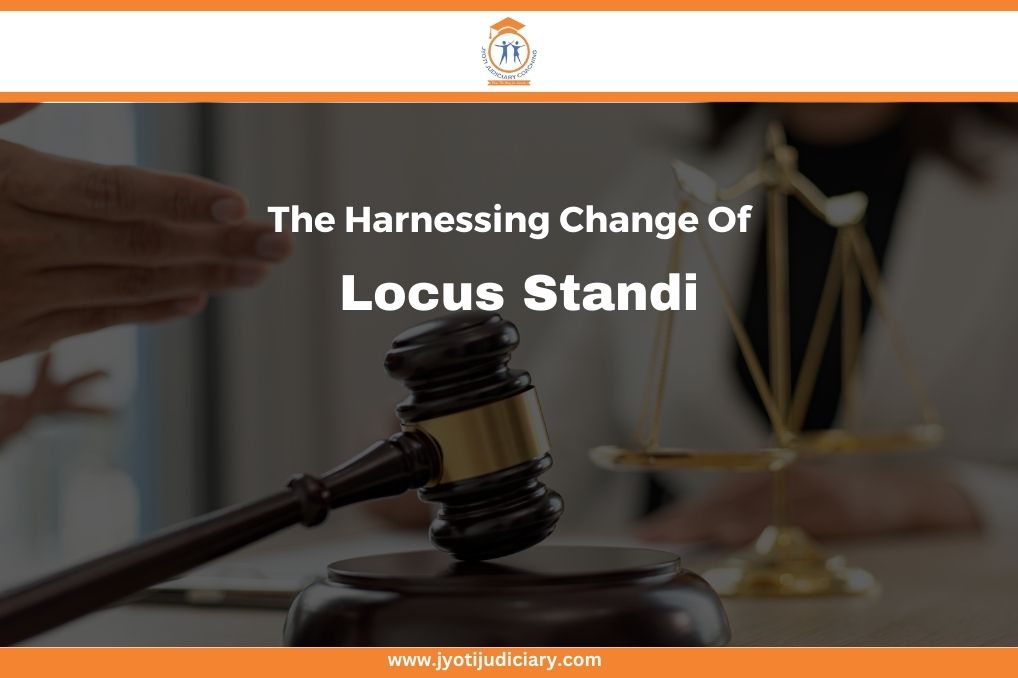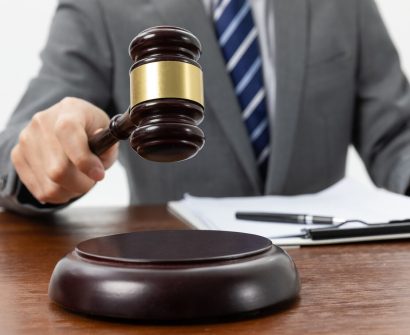
The rule of locus standi has long been considered to be vital for legal procedures. It specifies who is entitled to file a lawsuit in court, ensuring that the only individuals who are able to pursue legal recourse are the ones who have been personally affected or harmed by an issue in question.
However, because of societal changes, advancements in technology, and shifting legal interpretations, the traditional concept of locus standi has undergone significant modifications in the past few decades. This shift has rendered it possible to harness shifts in locus standi, giving voice to communities that are underrepresented and allowing hitherto unprecedented levels of involvement in justice.
Locus Standi
- The Latin phrase “locus standi” refers to “standing to sue” or “the right to bring an action in court.” When used in a legal context, it describes the legal right or interest that a party needs to possess in order to file a lawsuit with the court.
- A party needs to have a substantial interest or stake in the case’s outcome in order to have locus standi. This can include a more general public interest, like a citizen’s right to challenge legislation they perceive to be illegal, or a more direct personal interest, such as the right of a property owner to contest a zoning decision that impacts their land.
- Because it ensures that the courts are not overloaded with baseless or pointless claims, the idea of locus standi is crucial. The courts can concentrate their efforts on settling cases that are actually significant and pertinent to the parties involved by requiring parties to have a substantial interest or investment in the case’s result.
Locus standi law: Important Ingredients
- Presence of injury: It is important to remember that the basic prerequisite for filing a lawsuit is that the plaintiff must have sustained an injury. This harm may result from state action or from private parties’ actions. It is important to emphasize that the injury in question may, by definition, be actual or anticipated.
- Causation: The relationship between cause and effect is denoted by the term “causation.” It indicates that there must be a sufficient connection between the harm suffered by an aggrieved party and the actions of one party. The intention of this component is to guarantee that the harm that results may be linked to the defendant’s behaviour that caused it. Additionally, the element makes sure that no independent or third party is to blame for the harm, as this would make it more difficult to demonstrate the causal relationship.
Principle of locus standi: Exceptional Writs
- A writ known as habeas corpus is granted to those who have been unlawfully imprisoned. Thus, a person can apply to the court for the issuance of this writ, which literally means to bring the body, if they believe they have done no wrong and the police have held them without cause. The latin phrase “habeas corpus” means “TO HAVE THE BODY OF,” and it refers to a court’s order for the authorities to surrender the detained person’s body.
- Quo warranto is the legal term for when a private person assumes an office over which he has no legal authority. The term “quo warranto” literally means “BY WHAT AUTHORITY,” therefore the court may challenge a private person who takes on an office over which he has no authority. For example, the court has the ability to stop someone from enforcing an inspector’s obligation on them and inquire as to the basis of their jurisdiction.
Locus standi case law
The important locus standi case law is as follows:
- In the case of Jasbhai Motibhai Desai v Roshan Kumar, the Bombay High Court denied the writ petition, ruling that the appellant did not have locus standi in a court of law since his order had not directly infringed upon or violated any of his rights.
- In the case of Bandhu Mukti Morcha v Union of India, it was decided that public interest lawsuits provide the government and its representatives with a chance to prove that fundamental human rights matter to the oppressed segments of society, and that the court is empowered by Article 32 to form a commission to investigate human rights violations.
- In the case of M. Global Facilities v State of Punjab, it was decided that, according to natural justice principles, the State should give people the chance to hear arguments and speak freely. This is an example of how the tight rule of locus standi has been loosened.
Locus Standi FAQs
- What are the essentials of locus standi?
The Latin maxim “Locus Standi” is made up of two terms: “standi,” which refers to the right to bring an action, and “locus,” which signifies place. Therefore, it alludes to the ability to file an action or show up in court. In accordance with this idea, one must establish his legal ability before appearing in court.
- What is an exception to locus standi?
If someone places an inspector’s responsibility on him and he performs it as such, the court has the right to stop him and inquire as to what authority he is acting under.
- What is the common rule of locus standi?
The doctrine states that it is necessary to appear before the court or before anyone else about a specific topic. A stranger to a contested topic cannot be permitted to meddle in the legal procedures, as per the locus standi theory.
- Is locus standi not necessary?
A locus standi is not required in a habeas corpus case. Any relative of the individual in custody may petition any court on his behalf for a writ of habeas corpus. All other writs, excluding quo-warranto, necessitate locus standi.
- How do you prove locus standi?
In order to establish locus standi, a party usually has to show that they have been harmed in a certain way or have a direct stake in the issue at hand. Ensuring that only individuals who have a legitimate relationship to the legal matter are permitted to engage in the legal process is the goal.
- What is order 7 rule 11 locus standi?
The party will not have locus standi to file a lawsuit if no legal rights have been infringed. Essentially, it is the party’s capacity to convince the court that there was a good reason to file the lawsuit.
- Why locus standi does not apply in habeas corpus?
Because the judiciary views personal liberty as so vital, the conventional locus standi theory has been abandoned. Therefore, any other person may file a petition on behalf of a detained individual if they are unable to do so themselves.
- Does locus standi apply in quo warranto?
The Court cited Bindra Ban v. Sham Sunder (1959), in which the requirements for obtaining a writ of quo warranto were less stringent. Even yet, if a person has no link whatsoever to the appointment of the public office that is being contested, he is not eligible to file a quo warranto application.
- Which coaching is best for judiciary?
Jyoti judiciary Coaching offers the best judiciary coaching available in Jaipur. Its objective is to furnish the students with a comfortable learning atmosphere. It raises the probability of reaching the intended result by making the challenging task seem simple. Our mission at Jyoti Judiciary is to provide you with the best education we can. The Institute guarantees that it will make every effort to give you the best possible preparation for the Judicial Service entrance exams.
- Which coaching is best for RJS preparation?
The reputable Jaipur coaching program “Jyoti Judiciary Coaching” aids students in getting ready for the RJS exam. The best both online and offline RJS coaching program in Jaipur, Jyoti Judiciary, enables a methodical approach to RJS examination preparation. With great care, their curriculum has been created to include every topic and course required to pass the Rajasthan Judicial Service Exams.
With the goal of giving students the best coaching available for law entrance exams including the CLAT, AILET, and various other numerous state judiciary exams, Jyoti Judiciary Coaching, India’s Finest educational Platform, was established. Come enrol now with Jyoti Judiciary!
For any latest news, legal topics, judiciary exams notifications, patterns, etc watch Jyoti Judiciary’s YouTube channel for legal videos for any updates at https://youtube.com/@jyotijudiciarycoaching4852?si=2cwubh9d2A9urwJf









